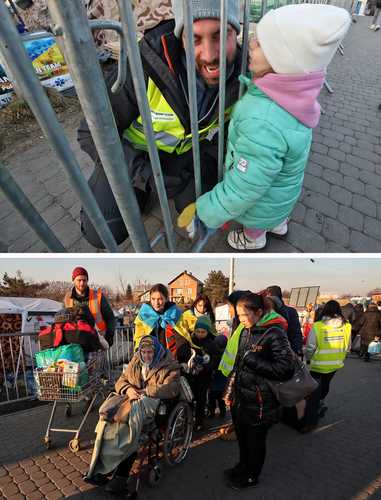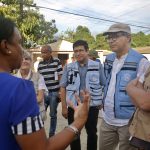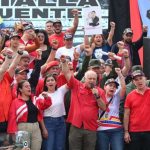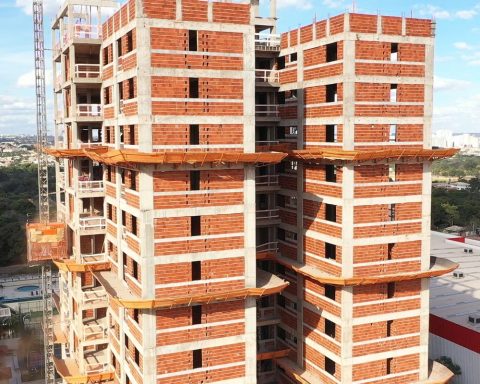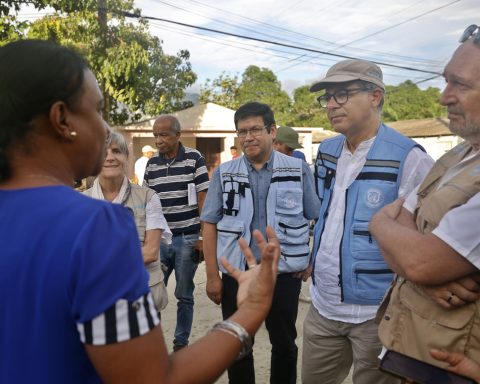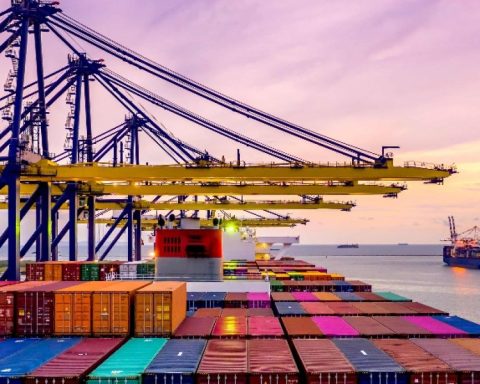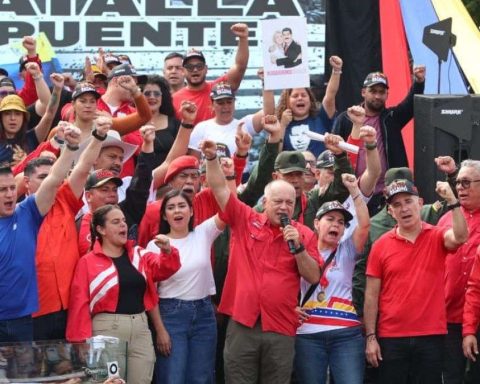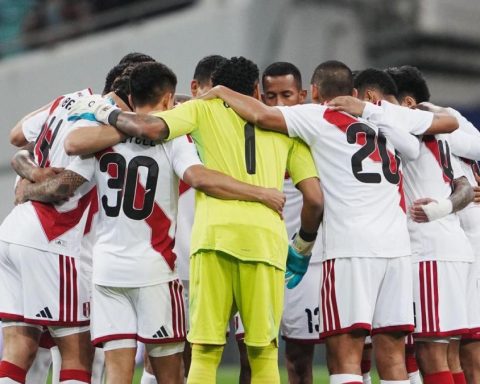▲ Ukrainian families seeking to escape the conflict enter Poland through the Medyka checkpoint.Photo Marco Pelaez
Emir Olivares Alonso
Sent
Newspaper La Jornada
Sunday March 20, 2022, p. 5
Medika. The passport makes the difference. Official European solidarity is selective. Of the hundreds of thousands fleeing the war in Ukraine, only the citizens of that nation manage to obtain, free of charge, the most demanded benefit: a train ticket to the West.
At the railway station ticket offices there is no alternative: either you are Ukrainian or you pay for the ticket. It doesn’t matter that you are also a refugee fleeing the conflict zone.
The measure is inconceivable, and even more so if the data on migration in the Slavic country is reviewed. The United Nations Organization has documented that until before the Russian invasion 11.9 percent of the population of Ukraine was a migrant (4 million 964 thousand 293 people). The majority –56.99 percent– are women, a sector that together with children and the elderly make up the bulk of the diaspora.
Economic constraints made it difficult for a family originally from Uzbekistan to leave Ukraine. Reaching the limits with Poland was a real viacrucis for its five members.
A few days ago, they crossed through this border town. They looked for the volunteers who are dispersed on the ground to provide support – yes, without making differences – to all the displaced.
A willing young Pole listened to her needs. They wanted to take a train to Western Europe, away from the conflict. Swiftly, the volunteer led them to the ticket offices of the train station in the neighboring city of Rzeszów, 72 kilometers from the border checkpoint. The dispatcher’s response left him stunned: they had to pay for the ticket because they were not Ukrainians.
Filip Igns turned to the Uzbeks and, embarrassed, informed them that they were not beneficiaries of this official European support for refugees from this war. The family reported that for 15 years they had resided in the Slavic nation. They had everything to prove it, except a passport from that country.
There was not enough argument and the denial persisted. Without that document there was no way to get a free ticket anywhere in Europe, not even Eastern nations. Enraged, Filip testified the drama that it meant for this family to pay for running away to the rich europe
.
This 21-year-old tourism student in Rzeszów is one of the volunteers who dare to speak out against the injustices he has witnessed during the exodus.
This is terrible discrimination. His life was in the Ukraine. The free ticket is covered by the authorities, it is very unfair that it is only granted to Ukrainians. We all run away from war and we need equality. The problem was that they did not have a passport. A passport is the difference
recriminates.
With Imaginepianist encourages refugees
On the Polish-Ukrainian border the stories continue. A few meters from the sentry box, the German pianist Davide Martello injects hope into the refugees with the best thing he knows how to do: music.
These are difficult times and the chords created in 1971 by John Lennon are born from his piano. imagine receives the displaced: “Imagine there are no countries/it’s not difficult/nothing to kill or die for…”
I try to give hope with some music. People arriving from Ukraine pass through the checkpoint (and can) listen to some music, leaving the bombing behind
Explain.
The beginning of the war had him anxious. After watching the news, he spent sleepless nights. He felt compelled to contribute to relieve people in the midst of this humanitarian crisis. An instinct made him request support on his social networks, explaining that he would make music for the refugees. He obtained 400 euros in donations and launched into the adventure.
He brought with him only an electronic keyboard. The rest of the piano was put together with wood and other recycled materials. She covered it with a coat of black paint and spruced up the cover with the peace symbol. For five days, at the Medyka border, he has been playing the piano for hours to comfort those fleeing the war.
Davide feels blessed when the refugees listen to his music. Some cry, others hug him, thanking him for the symbolic detail. It’s a very sad time right now, but music can give hope. I hope I’m cheering you up a bit
.
pain and uncertainty
At this border point, the flows of displaced persons have begun to decrease in recent days. Of the 3.3 million refugees from Ukraine in 23 days of conflict, 2 million have passed through Poland, for which an operation has been set up that includes the collaboration of several cities that are connected to this border. There is constant military surveillance and vehicles to take the refugees to nearby shelters.
Everywhere, points of support and shelter are observed for those who continue to arrive. Foods, toys, clothes and shoes to withstand the winter; water, sweets, hot soup, medicines and personal hygiene products. Nothing is missing in this Polish area, where armies of volunteers are willing to collaborate.
The border is not the only point where aid has piled up. Collection centers have been set up at nearby train stations, shopping malls and other spaces to receive financial or in-kind donations, as well as shelters for the displaced to spend one or several nights peacefully.
The largest is located in the huge still lifes that in regular situations are the headquarters of a commercial store, in Przemyśl, just a few kilometers from the border. On the dozens of square meters that the structure occupies there are mats for resting, dining areas, space for children to play and restrooms. The shelter has been overwhelmed for days.
Pain and uncertainty have circulated through this sentry box. Mothers whose children stayed in the Ukraine to enlist in the reserves in case of possible combat, women with husbands in a similar situation and orphaned children, knowing their parents were far away.
With the help of a puppet, a volunteer catches the attention of three-year-old Slata. The little girl waits while her mother enjoys a coffee to mitigate the cold wind that blows in this region. She smiles as she tries to snatch the toy from her. On the third stretch she gets it and runs back to where her family is. The man calls her again, asks for a kiss, the girl obliges him. An air of sadness appears in her eyes when Slata asks him a question that leaves him unanswered: Where is dad?
